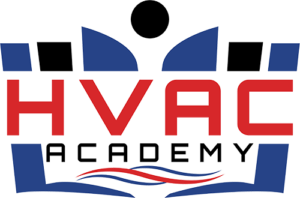HVAC (Heating, Ventilation, and Air Conditioning) training programs are designed to equip aspiring technicians with the essential skills and knowledge required to succeed in the HVAC industry. These programs cover a wide range of topics, with a focus on three core areas: troubleshooting, installation, and maintenance. Let’s explore the key skills taught in HVAC training programs in each of these areas.
Troubleshooting Skills
- Diagnostic Techniques: HVAC technicians learn how to use diagnostic tools and methods to identify issues within heating, cooling, and ventilation systems. This includes analyzing electrical circuits, testing components like capacitors and relays, and interpreting system error codes.
- Problem Solving: Students develop critical thinking and problem-solving skills to effectively troubleshoot complex HVAC problems. They learn to assess symptoms, analyze root causes, and implement solutions to restore system functionality.
- Fault Identification: HVAC training programs teach technicians how to recognize common faults and failures in HVAC equipment, such as compressor issues, refrigerant leaks, thermostat malfunctions, and airflow restrictions.
- Safety Protocols: Safety is paramount in HVAC work. Students are trained in safety procedures, including electrical safety, handling refrigerants, working at heights, and using personal protective equipment (PPE) to prevent accidents and injuries.
Installation Skills
- System Design: HVAC technicians learn about system design principles, including load calculations, ductwork design, equipment sizing, and zoning considerations. They understand how to design HVAC systems that meet efficiency standards and customer requirements.
- Equipment Installation: Students gain hands-on experience in installing HVAC equipment such as furnaces, air conditioners, heat pumps, ductless mini-splits, ventilation systems, and thermostats. They learn proper installation techniques to ensure system performance and longevity.
- Code Compliance: HVAC training covers building codes, regulations, and industry standards related to equipment installation. Technicians learn to install systems in compliance with local codes, ensuring safety, efficiency, and legal compliance.
- Quality Assurance: Training programs emphasize the importance of quality workmanship and attention to detail during installation. Students learn to test and verify system performance, conduct airflow balancing, and address installation issues to achieve optimal system operation.
Maintenance Skills
- Preventive Maintenance: HVAC technicians are trained in preventive maintenance practices to keep HVAC systems running smoothly and efficiently. This includes tasks such as cleaning coils, replacing filters, lubricating moving parts, and inspecting components for wear and tear.
- System Tune-Ups: Students learn how to perform system tune-ups and inspections to identify potential problems before they escalate. They check refrigerant levels, test electrical connections, calibrate thermostats, and evaluate overall system performance.
- Troubleshooting Maintenance Issues: Maintenance training includes troubleshooting skills to diagnose and resolve common maintenance issues such as airflow restrictions, refrigerant leaks, sensor calibration errors, and mechanical wear.
- Customer Service: HVAC technicians learn effective communication and customer service skills to interact professionally with clients, explain maintenance procedures, address customer concerns, and recommend preventive maintenance plans.
HVAC training programs focus on developing a comprehensive skill set that encompasses troubleshooting, installation, and maintenance skills. By mastering these essential skills, HVAC technicians are well-equipped to handle the challenges of diagnosing problems, installing new systems, and maintaining HVAC equipment for optimal performance and customer satisfaction.
Register for our HVAC Technician Training Program for a brighter future ahead. Contact us.







Leave A Comment